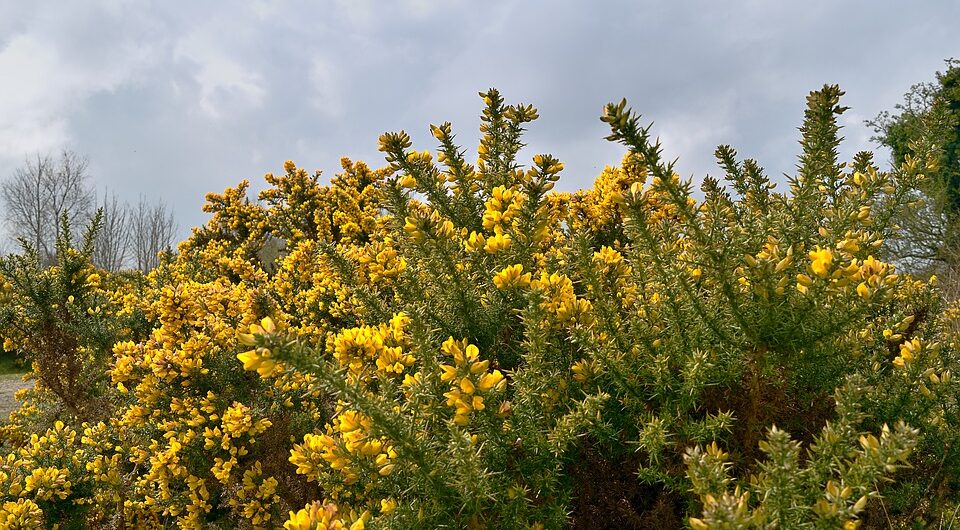Words by Rebecca Chitolie, News Editor
The invasive gorse bush could produce enough protein to “easily” feed millions of people, according to a leading expert.
While gorse is native to Britain, it has been widely cleared across Scotland due to it encroaching on valuable arable land that is used for other crops.
The prickly plant contains 17% protein content and has previously been used as an animal feed.
The suggestion comes from Professor Wendy Russell of the University of Aberdeen and leader of a Scottish Government research programme, looking into the protein content of invasive plants that must be doused with herbicides to keep them under control.
She revealed the gorse bush requires much less carbon dioxide emissions to produce a single kilogram of protein separate from gorse – 4.5 to 6kg – opposed to an average of 102kg used to produce an equivalent for meat.
“The whole point about gorse is it is actively being removed from marginal lands – it’s something we can gain protein from at no extra cost,” Russell said.
While calculations suggest that protein could feed Scotland’s population, it is a suggestion for the future rather than for immediate implementation. Professor Russell said, “If protein isolates are produced in the correct way, so to be safe, they could be considered as human food in the future”.
Russell spoke at a Science Media Centre event on alternative proteins that looked at the positives and negatives of alternatives to meat and dairy food products. The Food Standards Agency (FSA) launched a polling report at the event that showed 60% of people in the UK were willing to try plant-based alternatives to meat and dairy; a third were willing to try lab-grown meat and a quarter were willing to try edible insects.
Livestock and fodder production occupies 83% of the world’s farmland but produces only 18% of protein. Studies show that sharp cuts in meat eating in rich nations are needed to halt global heating.
From 1950 to 2000 the global population doubled, but meat intake increased fivefold, said Russell. This trend will become unsustainable for the environment, she said: “We really do have to change our diet.”
Fifteen Scottish farmers also planted hemp this year for the first time, Russell said. “These alternative plant proteins are very healthy, high protein, high in fibre, and high in micronutrients.”
Professor Robin May, the chief scientific adviser at the FSA said “There is a huge potential for novel proteins to have massive benefits in terms of environmental (..) and nutritional benefit. Our priority is to do everything possible to help businesses get those novel, innovative products safely onto the shelves as swiftly as possible.”
May said that while many people were reluctant to try new products, such as lab-grown meat, a quarter said they would change their minds if they were confident it was safe and well regulated. “That’s where we play a key role,” said May.
Lab-grown meat went on sale for the first time in December 2020 in Singapore. Supporters say they are produced in clean facilities and do not carry the risk of bacterial contamination like meat from livestock.
Neil Shah, at the Edison Group investment research firm, said “cultivated meat (…) has already begun attracting significant investor interest, as it offers the chance to enter an industry which could disrupt the global meat market over the coming decades”.





